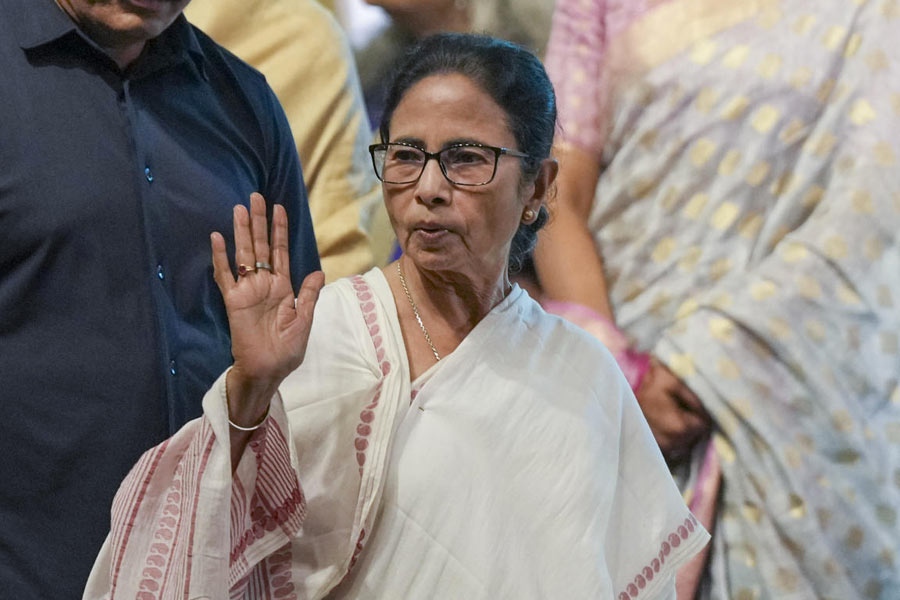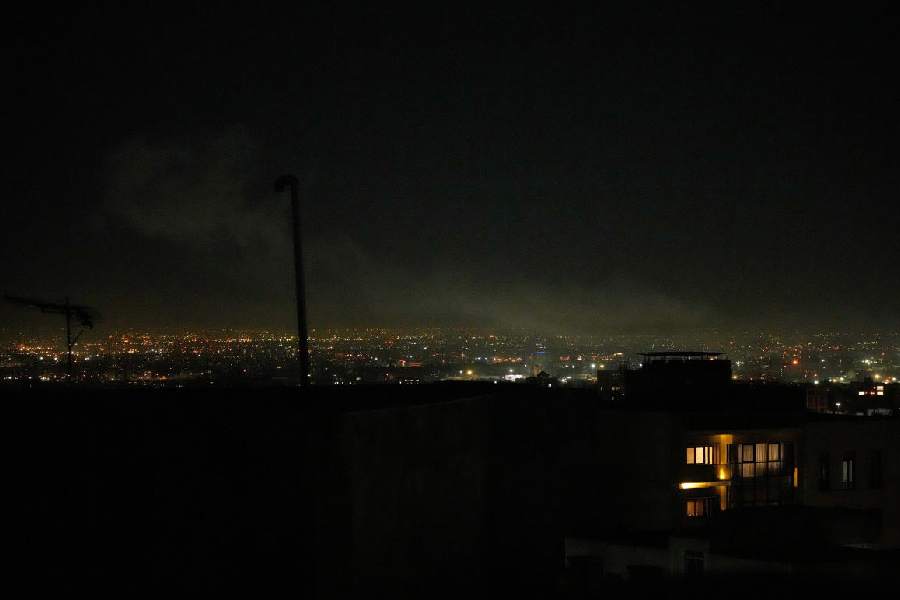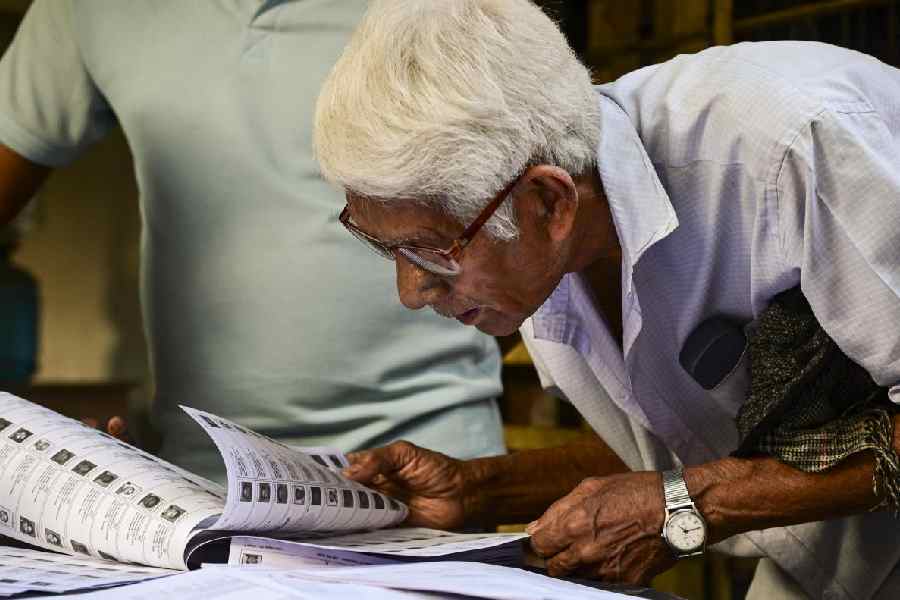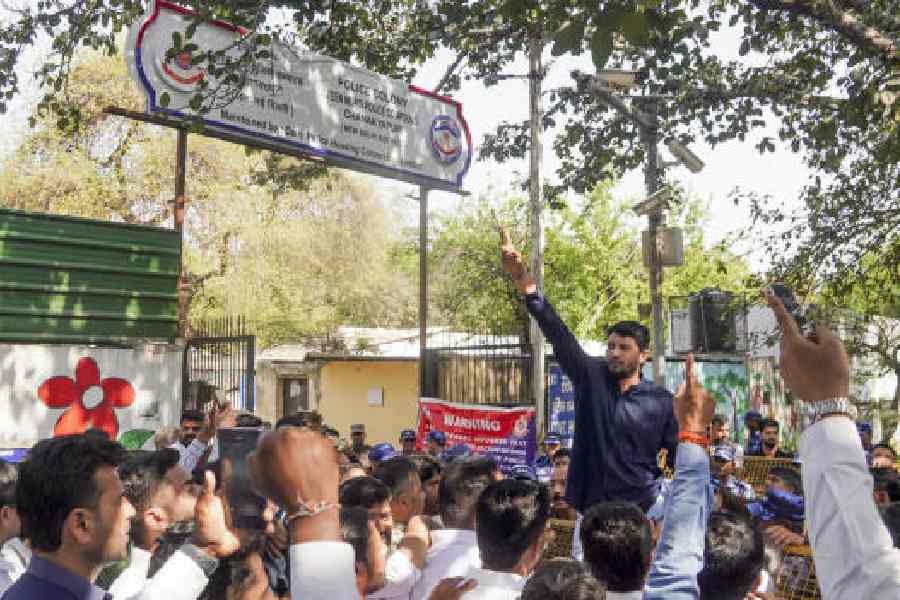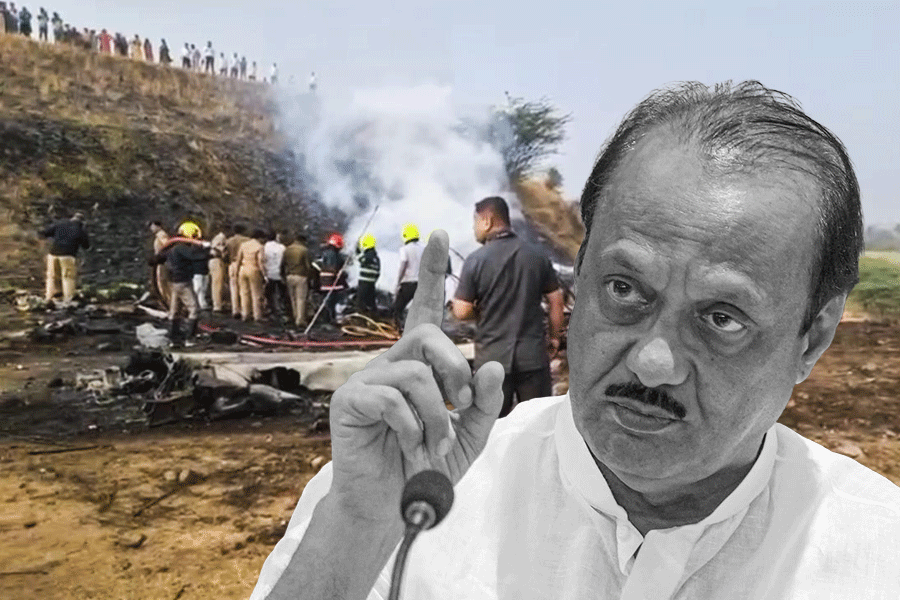The detention of Bengali-speaking migrant labourers in BJP-ruled states and their profiling as suspected Bangladeshis has ignited a fresh political firestorm in West Bengal, with the ruling TMC reigniting its Bengali identity pitch that had blunted the BJP's Hindutva juggernaut in the 2021 Assembly polls.
With months to go for the 2026 Assembly polls, what began as isolated complaints of harassment of migrant workers has now evolved into a full-blown political flashpoint.
The Mamata Banerjee-led TMC is going all guns blazing to turn what was once a socio-economic crisis into an emotive electoral issue, accusing BJP governments in Odisha, Assam, Delhi, Maharashtra, and Gujarat of "institutional and linguistic profiling" and "criminalisation of poverty" under guise of national security.
From branding the crackdown as a "humiliation of Bengalis" to planning massive protest rallies in Kolkata, including a July 16 march to be led by Banerjee herself, the TMC is rekindling the sub-nationalist fervour it used to great effect in 2021 through the slogan 'Bangla Nijer Meyeke Chaye' (Bengal wants its own daughter).
The flashpoint first emerged in June, when at least seven Bengali-speaking people were pushed back to Bangladesh from Maharashtra and other states, allegedly without proper citizenship verification or intimation to the West Bengal government.
They were later repatriated through legal and diplomatic intervention after their Indian citizenship was confirmed.
Last week, Odisha Police detained 444 workers from various Bengal districts on suspicion of being illegal immigrants, though 50 were later released after submitting documents.
In Delhi, electricity and water supply were snapped in Bengali-dominated Jai Hind Colony, following a civil court order amid allegations of power theft, adding further fuel to the fire.
"There are over 1.5 crore migrant workers in Bengal who live with dignity. But the same cannot be said for BJP-ruled states, where Bengalis are being treated as infiltrators in their own country. Speaking Bengali does not make one Bangladeshi," said TMC MP Samirul Islam.
"Harassment of Bengali workers is proof that this is part of a pattern of hatred towards Bengali-speaking people. Do these migrant labourers now need separate visas to visit BJP-ruled states?" Islam told PTI.
The Bengal government is now exploring legal options against what it calls the "unconstitutional deportation" of Indian citizens.
Seizing the moment, the TMC has pivoted its campaign narrative to champion the rights and dignity of Bengali-speaking migrant labourers, an estimated 22.5 lakh of whom work across in construction, brick kilns, factories, and informal sectors across the country.
"Our people are being treated like infiltrators just because they are poor and speak Bengali," said senior TMC leader Firhad Hakim.
TMC minister Manas Bhunia said, "These inhumane acts against Bengali workers reflect BJP's deep-rooted hatred for Bengalis. People of Bengal will give a befitting reply to this insult in the coming elections." Sociologist Supriya Basu called the developments part of an effort to "impose North Indian Hindutva culture on Bengal." "The BJP is attempting to set up colonies of Uttar Pradesh-style Hindutva in Bengal. Targeting migrants over language is just one manifestation of that push." "The large migrant population could have been an administrative liability, highlighting Bengal's job crisis. But BJP's aggressive profiling has flipped the narrative in TMC's favour." The BJP has countered TMC's allegations by citing national security and illegal immigration concerns.
BJP's IT cell chief Amit Malviya claimed over 300 of the 444 detained in Odisha had "fake or unverifiable" documents.
Newly appointed Bengal BJP chief Samik Bhattacharya went a step further, alleging a deliberate TMC-backed infiltration plan.
"These people work in other states and return to Bengal to vote for Mamata Banerjee. This is a demographic and national security threat," he said.
"Instead of protecting Indian citizens, the TMC is shielding infiltrators and playing the victimhood card," said BJP leader Suvendu Adhikari.
While the Congress and CPI(M) have condemned the harassment and arbitrary arrests, they have carefully distanced themselves from TMC's more emotive "Bengali vs outsider" pitch.
"Migrants labour rights are non-negotiable. But TMC's rhetoric is aimed at deflecting from its own governance failures," CPI(M) leader Sujan Chakraborty said.
Political analyst Suman Bhattacharya summed it up, "In Bengal, pride often trumps policy. Banerjee knows how to tap into that. TMC, which was being cornered on multiple fronts, has now found a potent counter-narrative through this migrant issue." Political scientist Maidul Islam predicted this would become a major political flashpoint in 2026 polls.
After its 2021 triumph, the TMC had tried to rebrand itself as a national party with pan-Indian ambitions, toning down the sub-nationalist plank and inducting non-Bengali MPs like Shatrughan Sinha, Kirti Azad, and Yusuf Pathan.
But with Assembly polls looming and the Hindutva narrative gaining steam, the party appears to be returning to its strongest emotional card — Bengali pride.
Whether the next election will replicate the "Bengali versus outsider" wave of 2021 or produce a more fractured verdict depends on how each party can sustain its competing narratives.
Except for the headline, this story has not been edited by The Telegraph Online staff and has been published from a syndicated feed.

